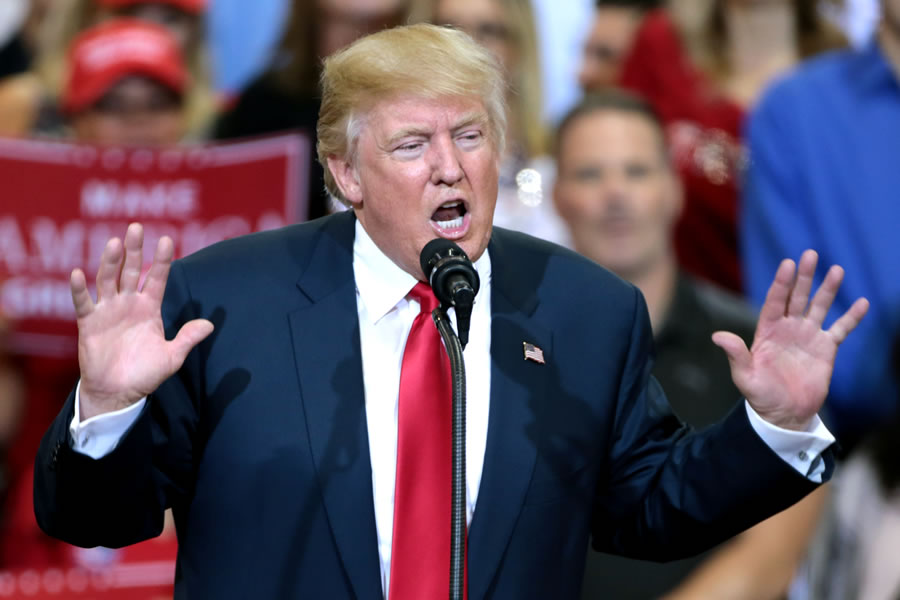On December 4, 2017, the Supreme Court has allowed the President Trump’s Presidential Proclamation of September 24, 2017[1] (also called the Muslim Ban 3.0) to take full effect, dramatically restricting immigration from five Muslim-majority countries (Iran, Libya, Syria, Yemen, and Somalia), as well as from Chad, North Korea, and Venezuela.
With this decision, the Supreme Court has allowed President Trump’s most recent version of the Muslim Ban to remain in effect, while challenges to the ban proceed through the lower courts. Prior to this, the Supreme Court limited the enforcement of a previous version of the Muslim Ban in Trump v. IRAP, protecting foreign nationals with a bona fide relationship to U.S. individuals or entities. EO-3 is now effective in its entirety, so the ban applies to all nationals of the designated countries, even if an individual has a bona fide relationship to an individual or entity in the U.S. There are, however, important exceptions as noted below.
Nationals from the designated countries will be affected as follows:
- Libya, Yemen, and Chad: Nationals seeking to travel to the U.S. on both immigrant visas[2] and specific nonimmigrant visas[3] (business, tourist, and business/tourist) are banned from entry.
- Iran: Nationals seeking immigrant and nonimmigrant visas are banned from entry, with exceptions:
o Student visas (F and M) and exchange visitor visas (J) are not banned, but visa holders may be subject to enhanced screening and vetting requirements.
- Syria and North Korea: Total ban on travel of foreign nationals to the U.S.
- Venezuela: Ban on travel is limited to certain government officials and their family members. Other Venezuelan citizens will be subjected to “additional measure to ensure traveler information remains current.”
o Bans government officials involved in screening and vetting procedures, and their immediate family members traveling on nonimmigrant visas (B-1, B-2, B-1/B-2).
- Somalia: Nationals seeking immigrant visas are banned. Somalian citizens applying for nonimmigrant visas will be subjected to additional scrutiny during the application process.
The following individuals are not affected by the Ban:
- Lawful permanent residents (“green card holders”);
- Foreign nationals on immigrant or nonimmigrant visas who have already entered the country;
- Dual nationals who are traveling on a passport from a non-designated country;
- Foreign nationals who have already been granted asylum;
- Refugees who have already been admitted to the United States; and
- Foreign nationals traveling on diplomatic or diplomatic-type visa.
It’s not over yet:
It is important to note that the Supreme Court’s Order removes the temporary stay, it is not a ruling on the merits of the case. The constitutional challenges to the travel bans are live in the Fourth and Ninth Courts of Appeals. Thus, the fight against the travel ban is ongoing and subject to change at any moment.
General Advice for Citizens of the designated countries who are currently in the United States
Do not leave the country, no matter what your status is. Even if you are granted parole or special permission to travel, there is a risk that you will not be allowed back into the country once you leave.
General Advice for International Travel
All international travelers, regardless of citizenship, should be aware that their belongings, including cellphones and laptops are subject to search. Border agents have “discretionary authority” to question travelers whom they deem suspicious.
Border agents have been asking for voluntary disclosure of social media passwords. The failure to comply with these requests at this time is not a valid basis for detention. The Trump administration has suggested that disclosure may be made mandatory in the future. CLCMA anticipates a challenge to any such change in policy. Travelers should be aware they may be subject to extended questioning if they refuse to disclose passwords.
Please contact CLCMA with your specific questions as the law is in flux, and information is constantly changing.
[1] https://www.whitehouse.gov/the-press-office/2017/09/24/enhancing-vetting-capabilities-and-processes-detecting-attempted-entry
[2] “Immigrants” are individuals seeking admission to the U.S. with the intent to reside there permanently.
[3] “Nonimmigrants” are individuals seeking admission to the U.S. on a temporary basis, with no intent to make the U.S. their permanent home. Examples: Business visitors, tourists, students, exchange students, temporary workers, etc.

